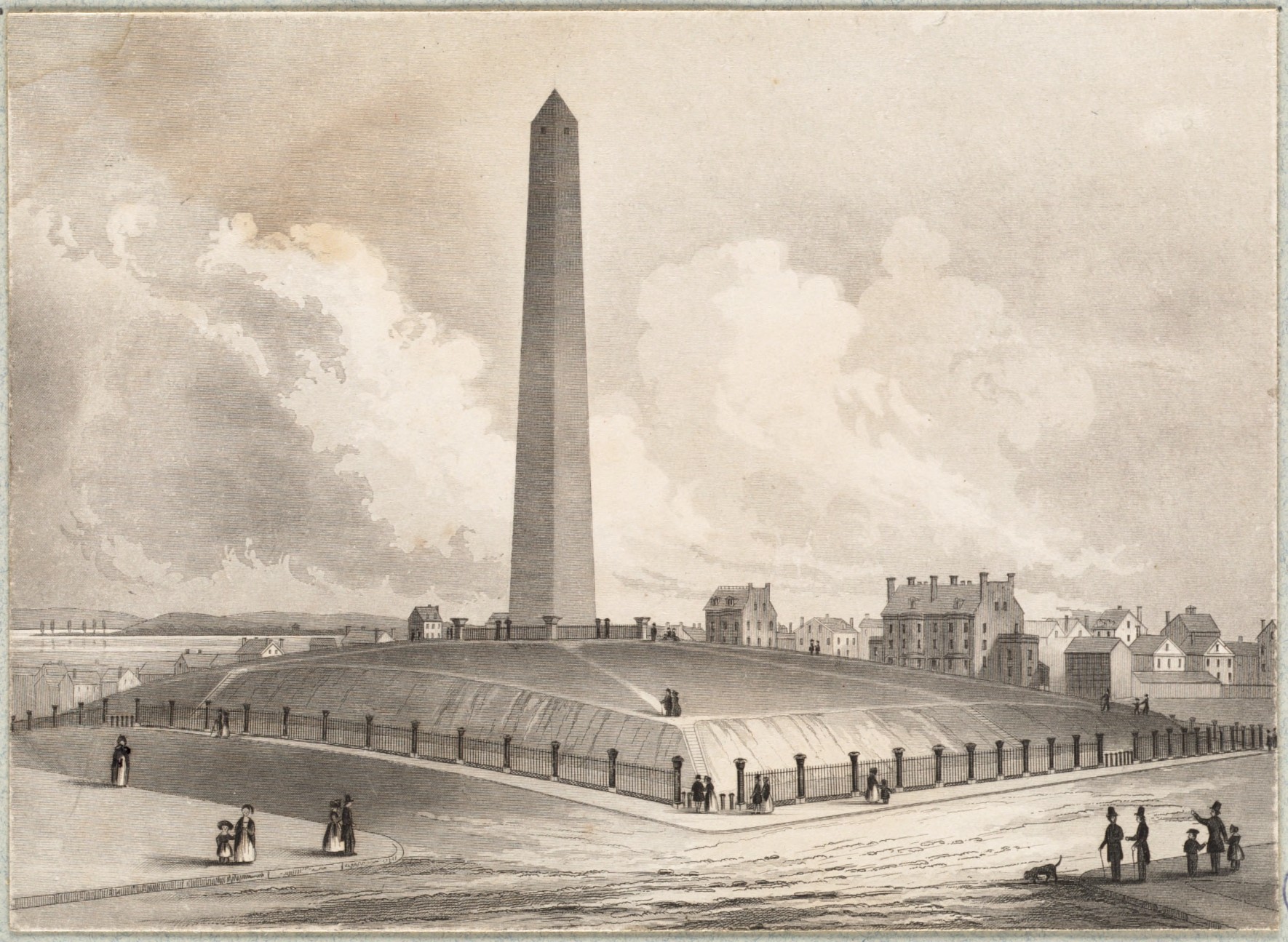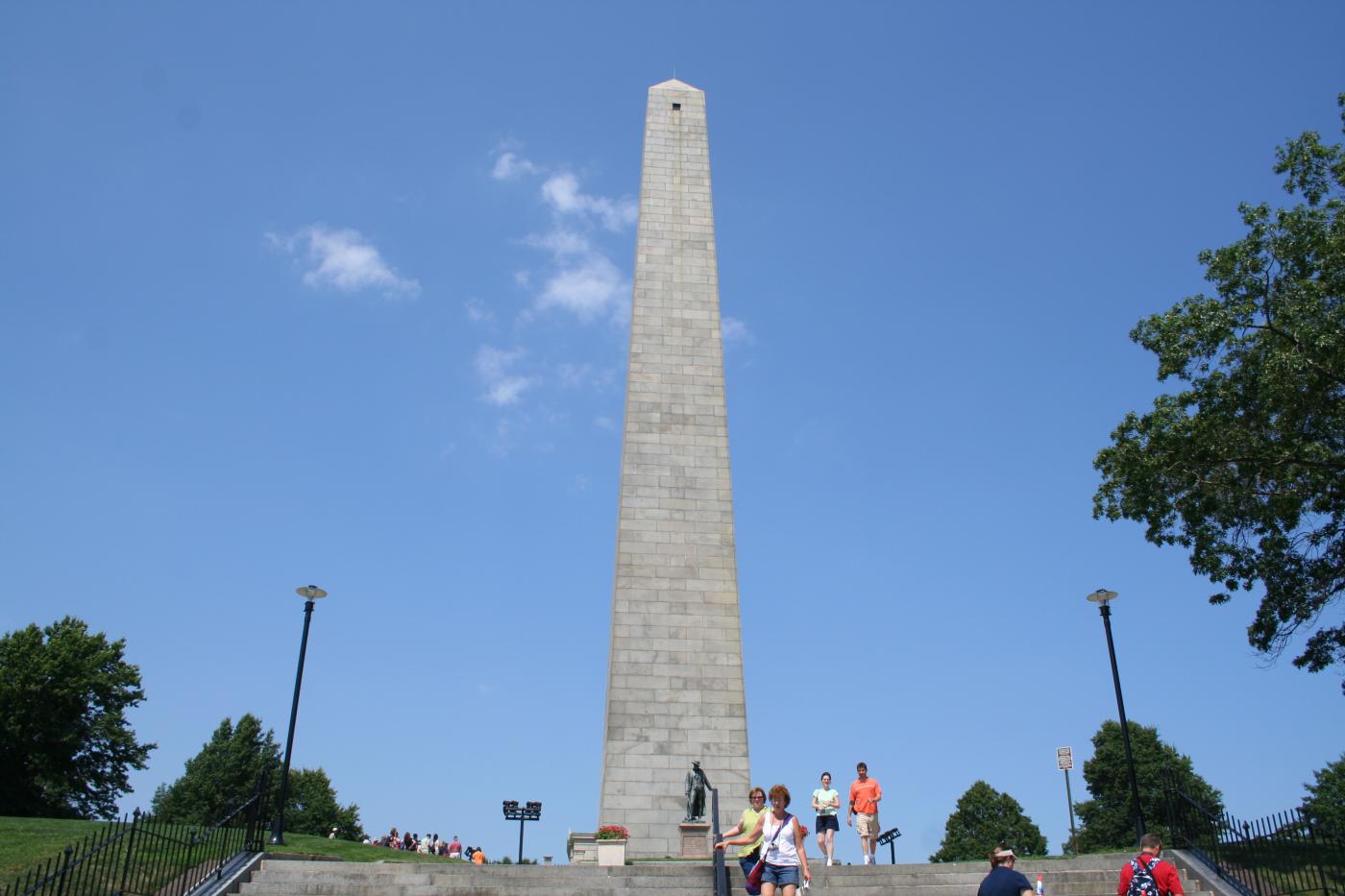The Battle of Bunker Hill on June 17, 1775, was the first major battle of the Revolutionary War and predicted the character and outcome of the rest of the war.
Visiting Bunker Hill Monument
43 Monument Sq.
Boston, MA 02129
Managed by the National Park Service
National Park Service
Access Information
- Wheelchair Accessible
- Restrooms
Featured Photo of Tour Site

View of Bunker Hill Monument, Charlestown, built 1824-43, Solomon Willard architect
It took a force of 3,000 Redcoats three assaults to dislodge the Colonial Militia from a hastily constructed redoubt atop Breed’s Hill in Charlestown. While technically a British victory, the Battle of Bunker Hill proved that Colonial forces could fight effectively against the British. Confusion about the name of the hill where the battle occurred goes back to the battle itself. Colonel William Prescott’s orders were to fortify Bunker’s Hill but he chose Breed’s Hill instead. A detailed map of the battle prepared by British Army Lieutenant Page reversed the two hills. Whatever the original error, the conflict was always known as the Battle of Bunker Hill.
The cornerstone of the Bunker Hill monument was laid in 1825 by Revolutionary War hero Marquis De Lafayette on the 50th anniversary of the battle. The 221-foot granite obelisk, would not be completed until 1842.
Bunker Hill Museum
Located across from the Monument is the Battle of Bunker Hill Museum. Along with dioramas and murals, artifacts from the battle itself on display include a cannonball; a snare drum; a sword; a masonic apron belonging to revolutionary leader Dr. Joseph Warren, who perished in the fight; and a trowel used by the Marquis de Lafayette in the groundbreaking.

"Don't fire until you see the whites of their eyes!"
